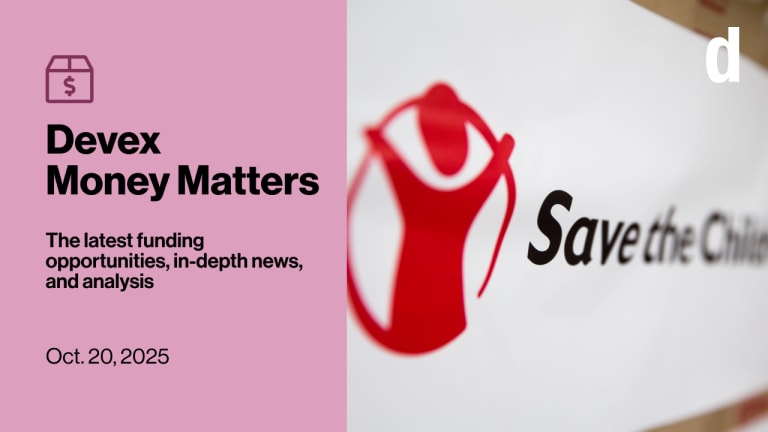An estimated £1 billion ($1.3 billion) of U.K. NGO funding is at risk — around a sixth of the sector’s income — according to estimates from one infrastructure agency. The culprit? Cuts in both EU and U.K. government funding.
This analysis comes from Tim Boyes-Watson, global director of insights and influence at Humentum, which supports NGO core functions such as HR and finance. He said that the funding cuts — combined with a drive toward greater local implementation of development — meant that many U.K. NGOs would need to look at a fundamental change to their business model.
He estimated that the amount of EU funding at risk due to Brexit was around €500 million a year, equivalent to around £417 million, or $567 million. In past years, he continued, U.K. NGOs received around £2 billion in ODA, and if this amount falls proportionately to the cuts, the reduction in revenue could be around £600 million.
This story is forDevex Promembers
Unlock this story now with a 15-day free trial of Devex Pro.
With a Devex Pro subscription you'll get access to deeper analysis and exclusive insights from our reporters and analysts.
Start my free trialRequest a group subscription







